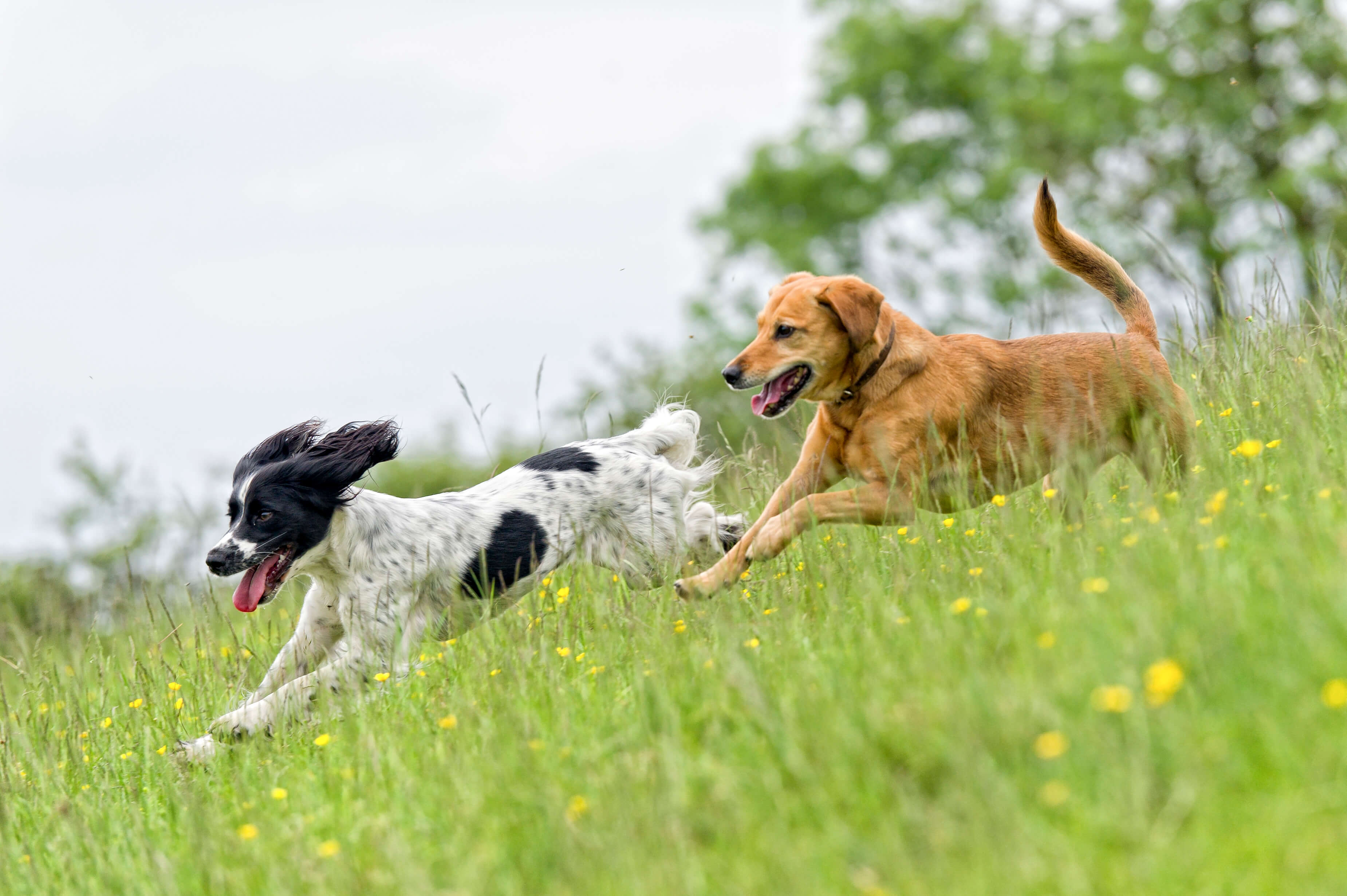
8 Ways to Keep Your Dog Exercising Despite Spring Seasonal Allergies
Springtime is rough for allergic pups. They do everything outside, whether that’s playing fetch, going for a walk or visiting other dogs. While they do so, they’re constantly bombarded with pollen that causes sneezing and itchy skin.
Unfortunately, keeping your pup in the house all season long isn’t an option. Dogs need vast green spaces to run around, especially if they’re a high-energy breed. While allergy symptoms are unavoidable, there’s a lot you can do to help out your furry friend.
Here are the top tips for exercising dogs with seasonal allergies.
- Visit indoor doggy facilities: Outside isn’t the only place where you can exercise your pup. Some towns have indoor facilities reserved for all sorts of canine activities. These facilities include large gymnasiums where dogs can run around and socialize with each other. You’ll also gain access to sports not available at home like flyball, lure coursing, swimming and agility courses. Your dog will be protected from environmental allergens, and they get to swap out their usual walk with something new.
- Let them play when it’s damp: “Wet dog” is probably something you don’t want to hear. But minor inconveniences are worth it for the sake of your pup’s health! The best time for dogs with allergies to romp outdoors is right after rain showers or when there’s morning dew on the grass. That’s because pollen is less airborne in damp atmospheres. If rain is in the forecast, hold off on that trip to the dog park. Your allergic pup will enjoy it a lot more with less pollen in the air!
- Learn new exercises at home: Not everyone has access to doggy facilities, and it may not rain for quite some time. If that’s the case, there are plenty of activities you can do in your home. Obedience training requires very little room and stimulates your dog’s brain. Tug-of-war and sprinting up the stairs are great for high-energy breeds. You could also play fetch and keep away or even set up a mini obstacle course. Remember to take breakable objects out of the room first!
- Feed your dog fish oil: You can’t keep Fido inside all the time. Dogs have to venture outdoors for walks, potty breaks and socializing at the dog park. Allergic pups are bound to develop skin irritation from all the pollen. Minimize your dog’s allergy symptoms by mixing a small amount of fish oil into their food. Fish oil is high in omega-3 fatty acids, which is praised for its ability to soothe red, itchy, flaky and inflamed skin. Speak to a vet about how much fish oil is right for your pup.

- Monitor your local pollen count: Pollen counts measure the quantity of allergenic particles in the outside air. You can go online and check the pollen count in your area up to a week in advance. This will help you plan an equal mix of indoor and outdoor activities for your dog. By monitoring local pollen counts, you’ll be able to go outside during low counts and protect your pup during high counts.
- Avoid peak hours of the day: Pollen counts ebb and flow with the sun cycle. They peak at midday but return to more tolerable levels in the early morning and late evening. Try to plan bathroom breaks and daily walks during these times as much as possible. You might have to gradually adjust your dog’s routine, especially if they grew accustomed to going outside midday during winter.
- Give your pup regular baths: Dogs with seasonal allergies need more frequent baths to eliminate pollen from their fur and skin. Bathing them more often can strip away natural oils, so buy a moisturizing shampoo that won’t exacerbate skin problems. You should also brush their coat once a day to get rid of allergens, dead hair and dandruff. Consider buying allergy wipes to clean off your pup’s paws when they come inside after frolicking in the grass.
- Ask your vet about medication: When all else fails, talk to your vet about getting your dog some allergy medication. In severe cases, prescription drugs are the only things that can provide relief from allergies. They let dogs take on the great outdoors without the incessant itching and sneezing. Remember that dog and human allergy medications are entirely different. Always follow a vet’s instructions on how to administer medication.
As allergy season approaches, pet parents must not forget about the four-legged family members who suffer this time of year. Dogs deserve allergy relief just as much as we do! What’s more, they can’t protect themselves from pollen. Pups have to go outside for exercise, so make the trip a bit more tolerable by giving them the right tools to overcome spring allergies.


